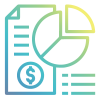YOU: Where can I get a loan?
ME: Banks and mortgage brokers. The banks include credit unions such as Conexus and Affinity and the big five we’ve all heard of—CIBC, BMO, RBC, TD and Scotia. A mortgage broker is a licensed professional who connects property buyers with a variety of mortgage lenders.
YOU: What’s the difference between banks and mortgage brokers?
ME: Banks and credit unions sell (yes, they sell you a mortgage because they make money on it) their own mortgage products, while a mortgage broker (sells you) a mortgage secured from one of a variety of lenders that may include one of the big banks but can also include secondary mortgage lenders.
When you deal with the bank, you work with their sales rep directly. When you use the services of a mortgage broker, you don’t communicate directly with the lender. All correspondence to the mortgage lender travels through your broker. The mortgage broker acts as a “middleman.”
YOU: Should I use a mortgage broker or my bank?
ME: They are both good choices but slightly different. I recommend meeting with both to discuss your situation.
YOU: What’s the advantage of using a mortgage broker?
ME: One advantage is great rates. A mortgage broker can shop around to find the lowest possible rate. They often boast shopping 100s(!) of lenders when they likely only deal with a few regularly. Another advantage of using a mortgage broker is they work outside of “banker hours”. To remain competitive, banks now offer mobile mortgage specialists that will meet you in your home during the evening and on weekends.
YOU: What’s the advantage of using my bank?
ME: One advantage is familiarity. If you’ve been at the same bank for some time, they have your financial information on hand. This can make processing the loan less painful, but it’s not always the case. They may also offer you some perks (free banking and the like) as an incentive for your business, but you have to ask. The banks may also negotiate their rate, but again you have to ask.
YOU: My credit isn’t great, but I make lots of money. Will I qualify for a mortgage?
ME: Probably not. Credit is as important as income. Lenders want to see a good credit history because they are lending you money. If you have a sloppy track record, they will notice.



